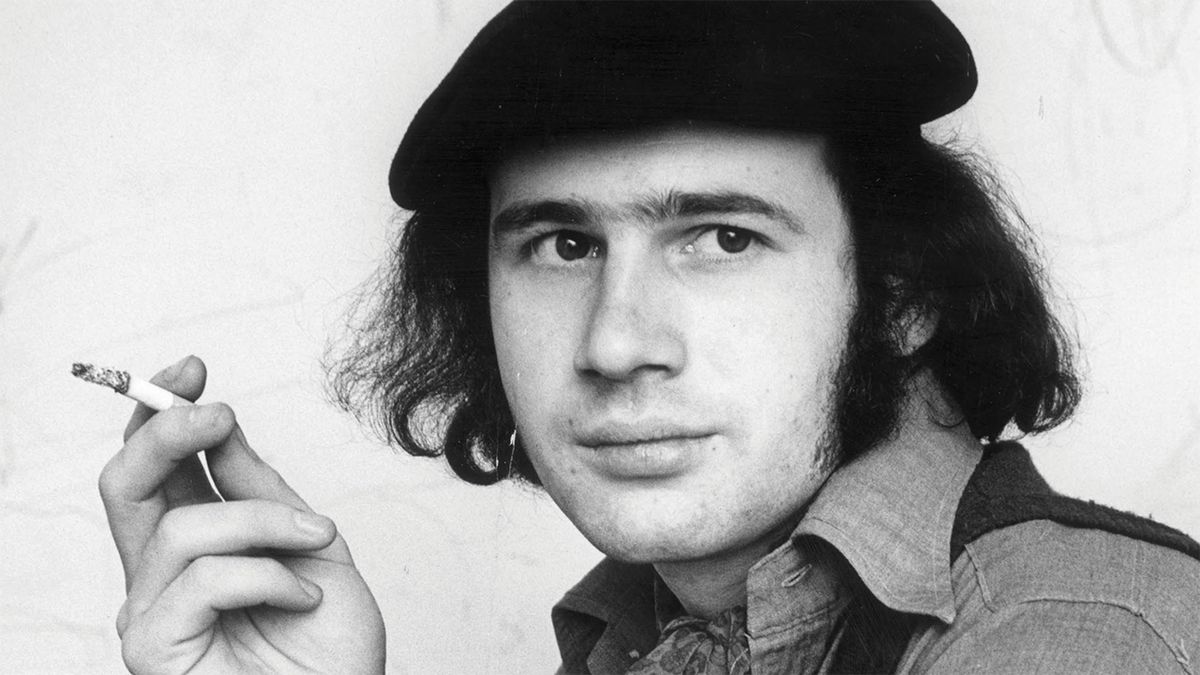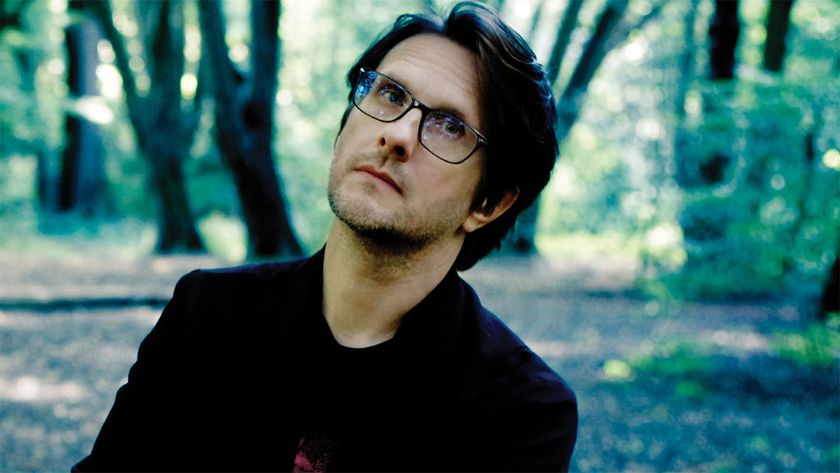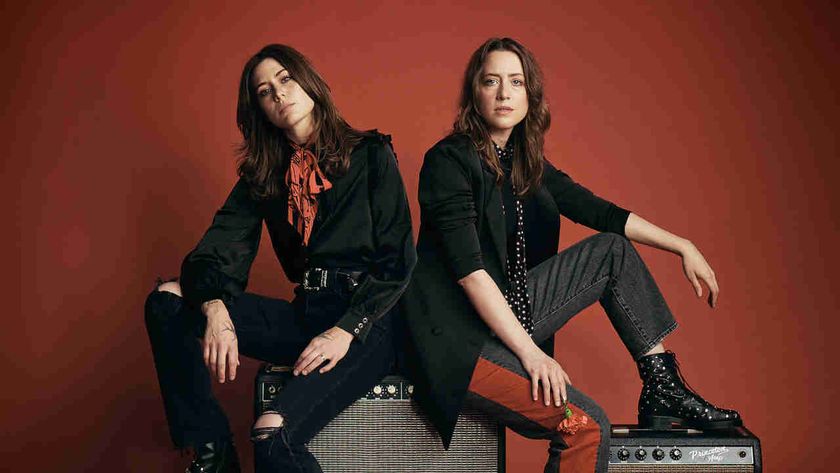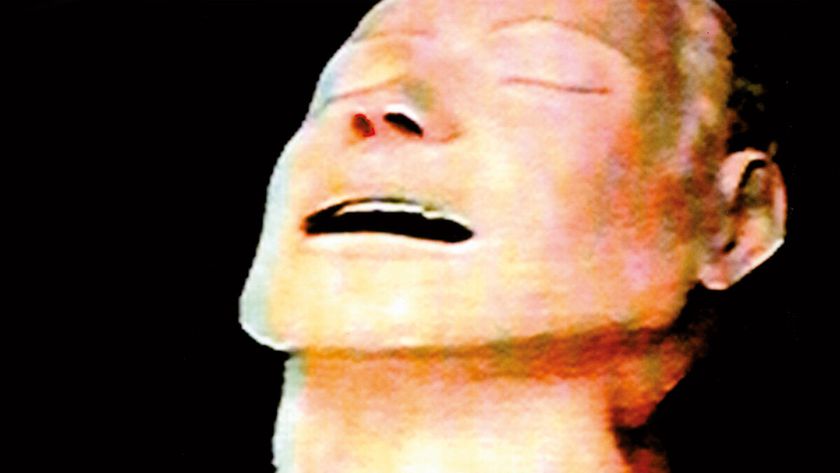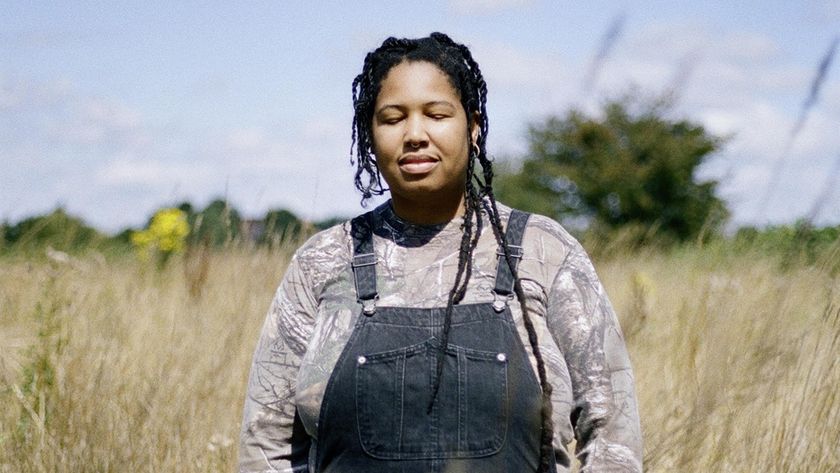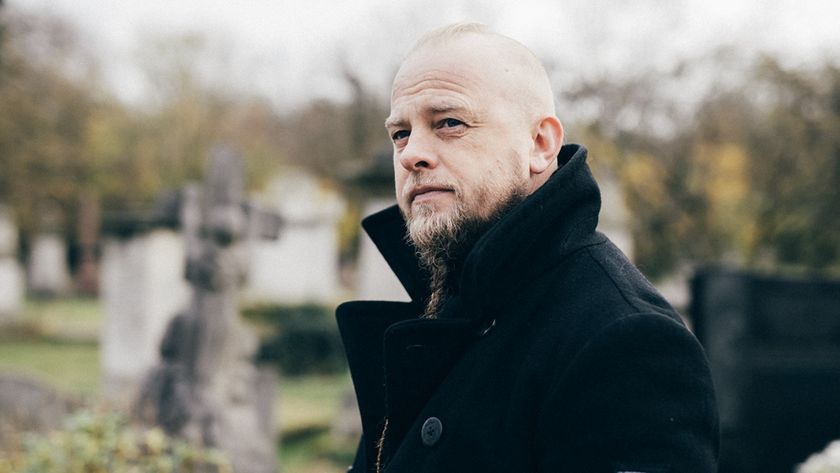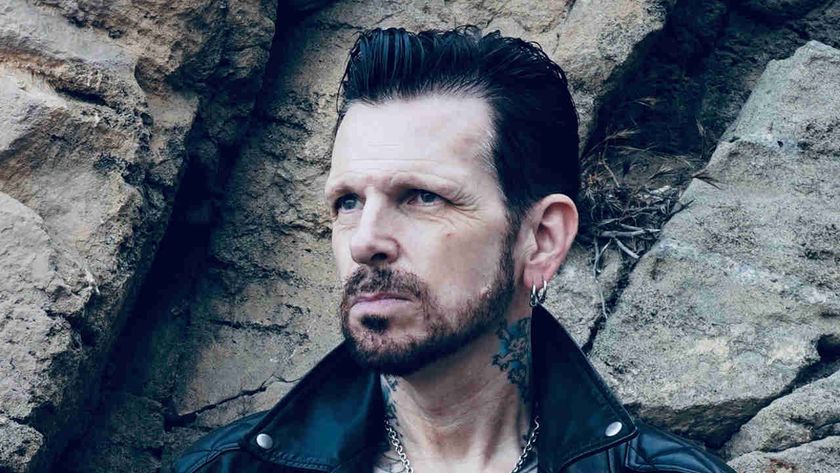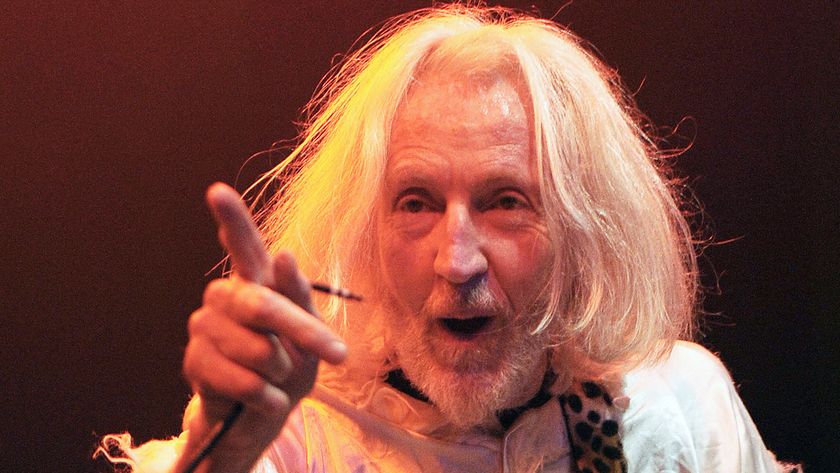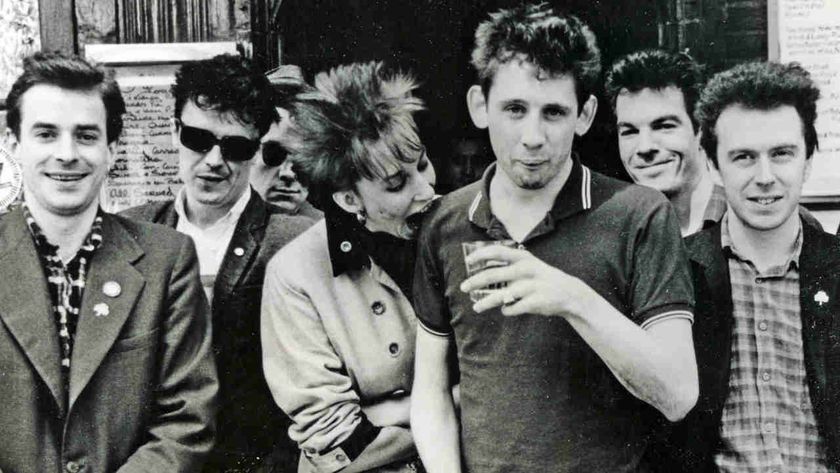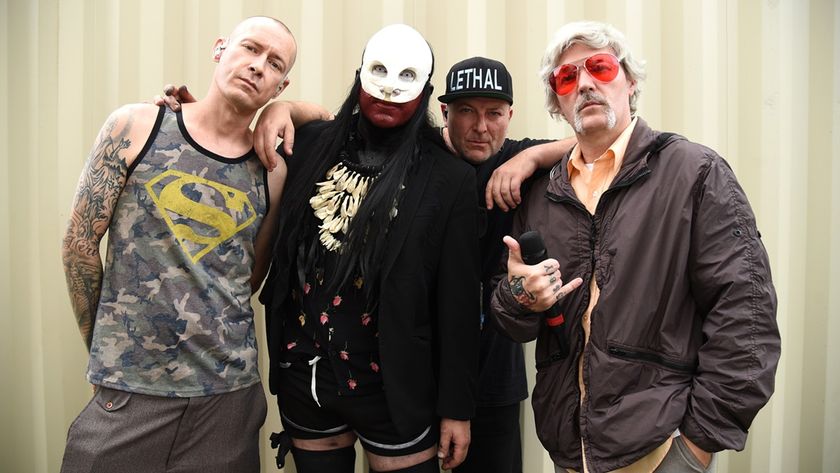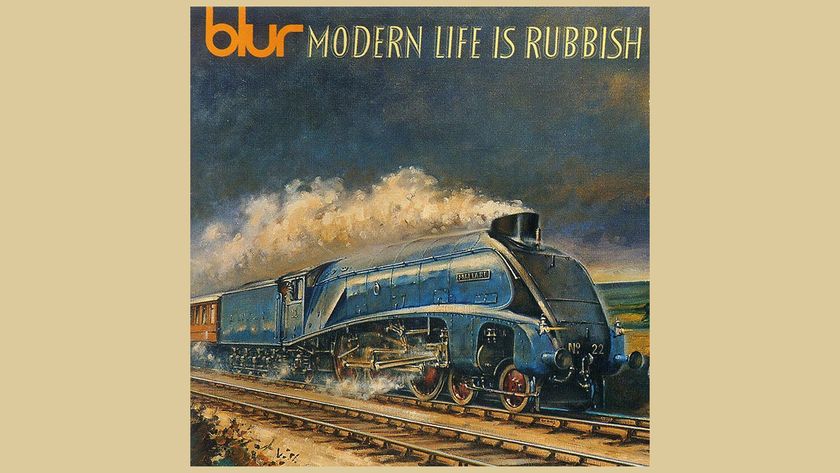His sharp wit helped shape the lyrics of The Bonzo Dog Doo-Dah Band and earned him a place at Monty Python’s expanding table. He went on to form the satirical band The Rutles with Eric Idle, and in 2019 – the year of his death, aged 75 – he released a new studio album, Nearly Really. Just before the record was launched we asked: How prog were Neil Innes and The Bonzos?
Neil Innes has a personal definition of what constitutes prog. “I would argue that by fusing any style of music with comedy, dissonance and poetry – in order to challenge the growing menace of monoculture in music – puts me
right at the cutting edge of whatever ‘progressive’ means nowadays,” he says. “But what do I know?”
Quite a lot, as it happens. Since joining The Bonzo Dog Doo-Dah Band in 1963, Innes has made a successful career by assimilating the worlds of music, satire, performance art and comedy over a number of disciplines. He was one half of the Bonzos’ songwriting team (alongside the irrepressible Viv Stanshall), before entering the 70s as the ‘I’ in poet-rock pranksters GRIMMS, and becoming the unofficial seventh member of Monty Python through a series of tours and recordings.
Innes also hooked up with Python Eric Idle for BBC2’s Rutland Weekend Television, which led, memorably, to Beatles pastiche band The Rutles and the essential 1978 mockumentary All You Need Is Cash, for which Innes took the John Lennon role as the sardonic Ron Nasty. Factor in his own TV series of the late 70s, The Innes Book Of Records, plus more than a dozen solo albums, and you have one of modern Britain’s most prized renaissance men.
Music was always on Innes’ radar, though he attributes his love of satire to the Bonzos, who he first played with in his student days at the Royal College Of Art canteen. By late 1966 they were making a decent penny as a live act, touring clubland Britain with their surrealist explosion of trad jazz, avant-pop and music-hall nonsense.
But the sudden arrival of copyists The New Vaudeville Band, who that year gatecrashed the UK Top 10 with novelty single Winchester Cathedral, made them reconsider their approach.
“We were happy doing our stuff, dressed in two-tone shoes, gangster suits and kipper ties, holding up pieces of cardboard as speech balloons,” explains the 74-year-old Innes. “The next thing, The New Vaudeville Band are on Top Of The Pops, looking exactly like the Bonzos, and holding up the same speech balloons. It was [drummer] ‘Legs’ Larry Smith who eventually called a house meeting and said: ‘Let’s cut loose and do whatever we like. In fact, let’s go progressive.’ So that’s what we did.”
Debut LP Gorilla was essentially a soup-to-nuts amalgam of their live show, but the Bonzos’ progressive tendencies truly surfaced on the follow-up, 1968’s The Doughnut In Granny’s Greenhouse. “That had all sorts on it,” says Innes. “We all got quite inventive.”
Just prior to that album’s release, Innes had also managed to deliver the group an unlikely hit single. Not that they particularly wanted one.
“We were working all the time doing live shows, going out for as much as Pink Floyd,” Innes recalls. “But then the record company said they needed a single. I came up with this song in a hotel in Manchester, overlooking a building site. They were called urban spaces in those days, so I thought: ‘Why not call it I’m The Urban Spaceman?’ I wrote it in an afternoon.
Somebody asked John Lennon what he thought of The Rutles. He answered by singing Cheese And Onions
“Viv was in the Speakeasy one night, moaning to Paul McCartney that we were being forced to make this single,” he continues. “So Paul offered to produce it. I remember him walking into the studio, saying hello to everybody and spotting the grand piano in the corner. He went straight over to it and said: ‘I’ve just written this,’ and he played Hey Jude all the way through. The Beatles probably hadn’t even heard it yet.”
The anarchic merriment of the Bonzos appealed to many other contemporaries too. Eric Clapton was one of them.
“He told me that he’d always wanted to come on stage with a stuffed parrot on his shoulder,” says Innes. “I said to him: ‘Eric, there’s a poster of you out there, with ‘Clapton is God’ written underneath, so you can forget the parrot.’”
But it was The Beatles who proved to be the Bonzos’ most enduring celebrity friends. And, as it transpired, the inspiration for one of Innes’ greatest achievements.
The idea for The Rutles came about through Innes and Idle’s collaboration on Rutland Weekend Television, a show that consisted of skits and sketches, interlaced with songs written and performed by Innes. It ran for two series, beginning in the summer of ’75.
“The franchises were in the news a bit,” he explains, “so the premise was: ‘What if Rutland put in a bid for an independent television company? It wouldn’t have much money, because it’s the smallest station.’ And BBC2 lapped it up, because it was deliberately cheap. We had variations on things like Armchair Theatre, and War And Peace where the retreat from Moscow was two old-age pensioners in uniform walking by a hedge in Surrey.”
Rutland Weekend Television also included a no-budget sketch about The Beatles. “I said: ‘Why don’t we do A Hard Day’s Night? It’s black and white, we can speed it up, four guys in wigs and tight trousers, running around in a field.’ And Eric said: ‘Yeah, great. I’ve got this idea for a documentary maker who’s so dull that the camera runs away from him.’”
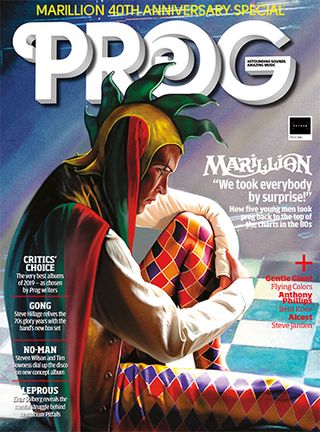
Broadcast on Boxing Day 1975, The Rutles sketch featured a guest appearance from George Harrison, whom Innes had first got to know on the set of The Beatles’ Magical Mystery Tour. Harrison actively encouraged the pair to make a full-length parody film of The Beatles’ story, partly to deflate the whole Fabs myth.
“It was around the same time that [American promoter] Sid Bernstein was trying to get The Beatles back together and offering $20 million or whatever,” says Innes. “So it flew from there. They showed the clip of The Rutles on Saturday Night Live, and then [creator] Lorne Michaels took 20 minutes to get the budget for All You Need Is Cash. George was right on board. Of all The Beatles, I think he was the one who wanted to put the suit in the cupboard and move on. He couldn’t have been more helpful.”
All You Need Is Cash features Idle in a dual role as the dullard TV reporter and The Rutles’ perpetually chirpy Dirk McQuickly (Paul McCartney). Drummer John Halsey is Barry Wom (Ringo), while Ricky Fataar is Stig O’Hara (Harrison). The film includes lots of big-name guests – among them Mick Jagger, John Belushi and Harrison – but it’s Innes’ remarkable take-off songs, allied to his dry portrayal of Lennon, which steal the show.
“I realised that if I started listening to The Beatles’ actual songs beforehand, I wouldn’t get anywhere,” he explains of the writing process. “So I thought: ‘It’s my life, I’ve got to approach it that way. Where was I when such-and-such happened?’ And I started writing the songs that way. Once you’ve got the structure, with the melody and the right chords, you can begin to make them sound Rutles-y.”
Innes’ songs were emphatically tongue-in-cheek – for Help! read Ouch! – but also glowed with their own unique brilliance. Indeed they were so acutely observed that one of them, Cheese And Onions, found its way on to a Beatles bootleg, in the mistaken belief that it was a Fabs original.
“The NME rang me up, saying: ‘There’s one of your Rutles songs on this Beatles bootleg album.’” Innes laughs. “I got them to play it to me over the phone. I said: ‘That’s me on Saturday Night Live!’ The story going around was that John Lennon had written it.”
I feel as though these are songs that I meant to do something with, but never did… it’s now or never
Upon the release of the film, Lennon, like Harrison, declared himself a fan. “Somebody stopped him in the street in New York and asked what he thought of The Rutles,” says Innes. “He answered by singing Cheese And Onions. Ringo’s always been a bit diplomatic about the film. Paul didn’t like Eric’s portrayal of him as being cute. But he started it!”
Innes, Fataar and Halsey appear on the soundtrack, though Idle’s parts are done by singer/guitarist Ollie Halsall.
“Eric was desperate to sing and be on the album, but he came down with appendicitis,” Innes remembers. “On the first day of recording, he turned up with a walking stick, so I told him to go and get better. There’s a part of him that’s never forgiven me for that.”
The Rutles continue to run, and reunited (minus Idle) for 1996’s Archaeology and occasional tours, the most recent of which was this year. It’s something that Innes manages to juggle between solo shows, writing and recording. His latest project is Nearly Really, an admirable collection of tunes, some of whose roots can be traced back to the 1980s. “I feel as though these are songs that I meant to do something with, but never did,” he reasons. “So it’s now or never.”
The songs on the album range from the laugh-out-loud funny (Surly In The Morning) to the poignant (Old Age Becomes Me; Body And Soul) and the political (The Filthy Rich; Soft Shoe Shuffle). One choice moment is Give It Up, which he first performed live on BBC breakfast TV during the 80s, to coincide with No Smoking Week.
I’m just like Shakespeare, except with better songs
“The night before, I’d been staying with George Harrison, and told him I had to get up early in the morning to go on Breakfast Time,” Innes recalls. “George went: ‘Oh, I love [presenter] Selina Scott! Will you tell her that I love her and want to buy her jewels?’ So we were just about to get the interview started on air, and I told her what George had said. The poor thing went bright red.”
Innes is hoping that the ‘new’ songs “might become friends, if people stick with them.” Like almost everything he’s done over the past 50-plus years, they carry his own distinct imprint: droll, sharp, literate and deftly melodic.
“I’ve never looked at a demographic and thought: ‘I’ll target that audience,’” he says. “Apart from when I’ve set up to do silly parodies, I’ve always written from my own experience. Shakespeare wrote comedies as well as dramas, and I like to think I do that too. I’m just like Shakespeare, except with better songs.”
